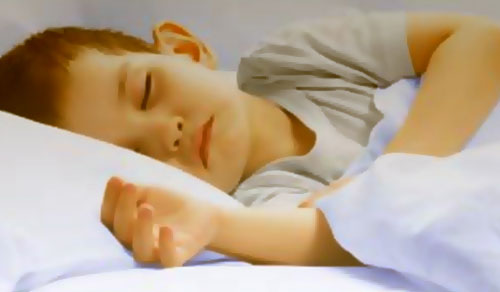Bedwetting can be upsetting and the practicalities of washing the bedding can take up a lot of time especially for parents who lead such busy lives. Wetting the bed at night (nocturnal enuresis) is very common in young children. In fact, it is normal up to the age of five years and eventually it does pass!
All about bedwetting
- Almost half of all three-year-olds and about 10% of five-year-olds wet their bed
- It is somewhat more common in boys than girls
- Children who wet the bed often have no physical or great emotional problems
- Bedwetting can become a social problem for many children and their families if it is still continuing by the age of six to seven years
- There are two types of bedwetting: 1. The child who has never been dry for more than a few months at a time (primary nocturnal enuresis) 2. The child who has been completely dry for more than 6 months and then starts to wet the bed again (secondary nocturnal enuresis). An emotional event or social changes or constipation may trigger this second kind of bedwetting.

This article is by Janet Cater
More about secondary enuresis
One of the possible causes of bedwetting that starts after a period where the child was dry, might be a trauma or anxiety, or it could be due to an infection. If you suspect your child has any kind of urinary infection it is important to seek medical advice. Symptoms may include pain on urination, cloudy or strange smelling urine and fever/malaise.
Another type of infection that can bring on a longer, more chronic version of secondary bedwetting to look out for is if it occurs after a streptococcal or another type of infection that can bring on symptoms such as sore throat, ear infection, chest infection or skin infection. Sometimes these infections are not adequately mopped up by the immune system, especially if there are gut issues present, and the after effects of this can bring about a state of inflammation called PANDAS or PANS.
These conditions have been becoming increasingly common and can also be associated with behavioural changes such as rages, tics or movement disorders and OCD type behaviours.
If you suspect this as a cause for your child it is best to see a homeopath or other natural therapist who specialises in PANS/PANDAS and understands the underlying issues at play. It is a complex issue and outside of the bounds of this article to go any further.
What causes bedwetting?
- Interestingly, 60% of children who wet the bed produce more urine during sleep than other children
- The amount of urine the bladder holds may be less in bedwetters than children who don’t wet the bed
- Fluid restriction in the evening doesn’t prevent the episode from occurring
- Please take notice of this fact: because it happens during sleep the child has no conscious control over it
- The cause may be your child has worms!
What can you do to help bedwetting?
- Please reassure your child, especially if they are upset. You need to be patient and understanding, even though you may feel angry
- A night-light may be useful for children who often wake up during the night, either to go to the toilet or to change their pyjamas
- Do encourage a good night’s sleep. A restful sleep without interruptions is best for your child. Waking your child to go to the toilet during the night will not help solve the problem
- Do try absorbent pads. The pads go under the bottom sheet to keep the bed drier and more comfortable
- Do shower or bathe your child before you let them go to pre-school or school
- Do encourage your child to have plenty to drink, particularly during the day
- Do discourage your child from drinking caffeinated drinks in the evenings (eg chocolate or cola drinks)
When should you seek some professional help?
- If your child is still wetting the bed after the age of about six or seven, and the child is unhappy or uncomfortable about it.
- If your child has persistent daytime wetting. If it is causing problems in the family. If your child has been dry at night for over a year and suddenly starts to wet the bed again.
- If your child has not been dry at night after a stressful or traumatic event – constitutional homeopathy can be so supportive here.
- If your previously dry child has had a recent infection and has begun to wet the bed and show other behavioural changes.
There are good programmes at most hospitals for treating enuresis. Osteopaths, Chiropractors and Homeopaths can assist with these issues.
Some homeopathic remedies that may be supportive for the uncomplicated type of bedwetting:
Causticum: this remedy is commonly used to help support symptoms of bedwetting in a child that is worse when the weather is cold. The child might also have accidents on coughing or sneezing or even laughing. The child might also be prone to coughs and colds, and chilly.
Lycopodium: bedwetting in children who crave sugar, are irritable and angry and who boss their parents around or are scared and anxious in social situations. They are hot bodied and cranky.
Equisetum: the child will dream of urinating as they wet the bed. It is common for the child to have accidents during the day as well. There may be pain at the close of urination.
Pulsatilla: the child is clingy, cries easily and not very thirsty, needing to be held and comforted often.
Kreosotum: The child wets the bed in the early part of the night and once they have an urge to urinate, they must rush to the bathroom as it becomes urgent very quickly.
Aconite: may be useful if the bedwetting starts after a shock, such as hearing bad news, a car accident or an upsetting incident. The child may become anxious and withdrawn or more needy of cuddles and reassurance. Worse after being exposed to cold wind.
Sepia: the child may urinate early in the night and be worse when it is cold, like Causticum. However, unlike Causticum the child might be somewhat indifferent to having close relationships with family, they may be rebellious and needing a lot of physical activity to keep them calm and content. There may be small accidents during the day as well.
Please note – there are many different remedies that can cover symptoms of bedwetting. If you are unsure whether your child fits the symptoms of any of these remedies, or if you have tried various remedies and they are not helping, please make sure to seek professional assistance.
- Maintaining your Mojo in Menopause - 06/06/2025
- The importance of Muscle Mass in menopause - 12/03/2025
- Penny’s gluten free bread recipe - 14/10/2024



